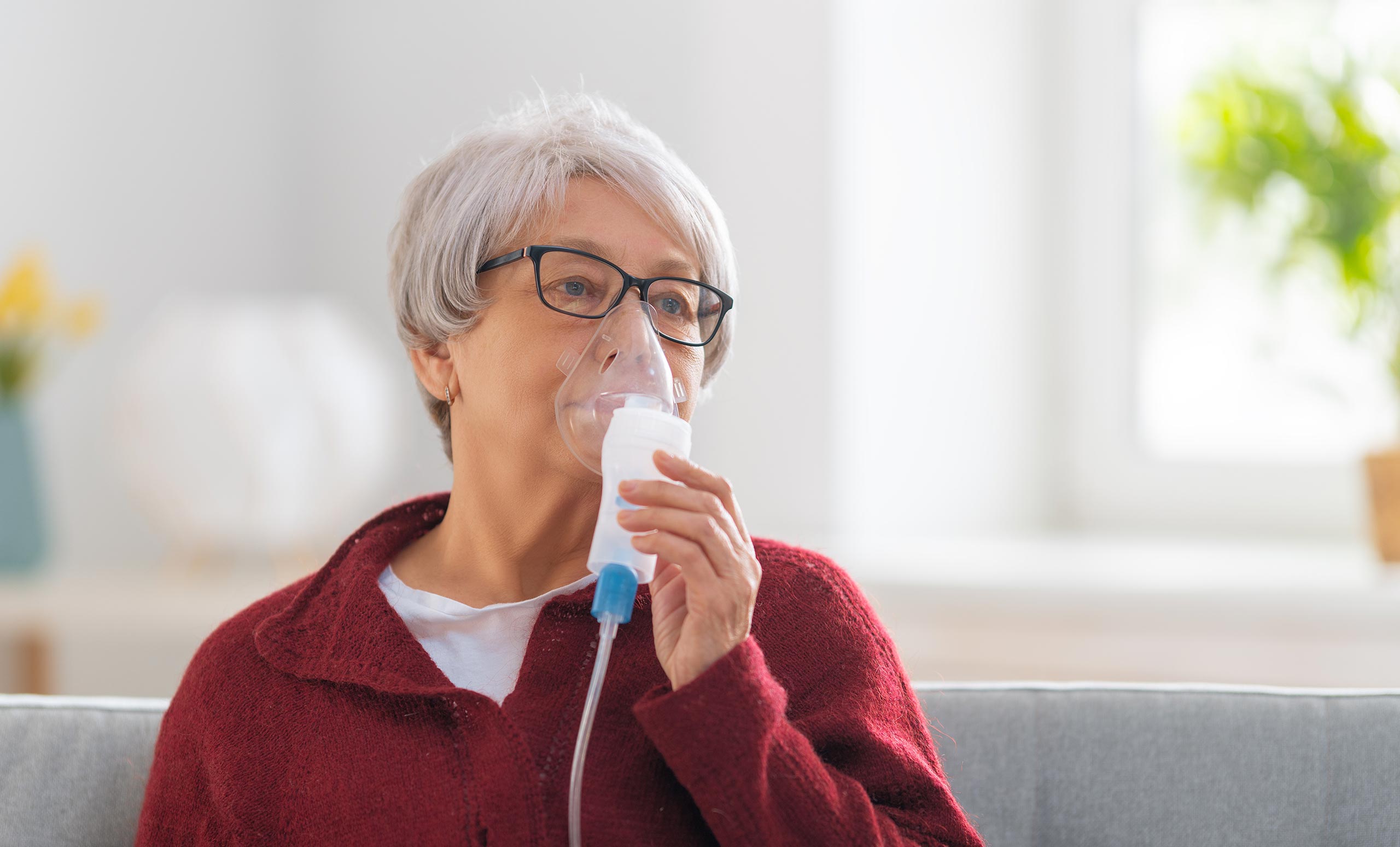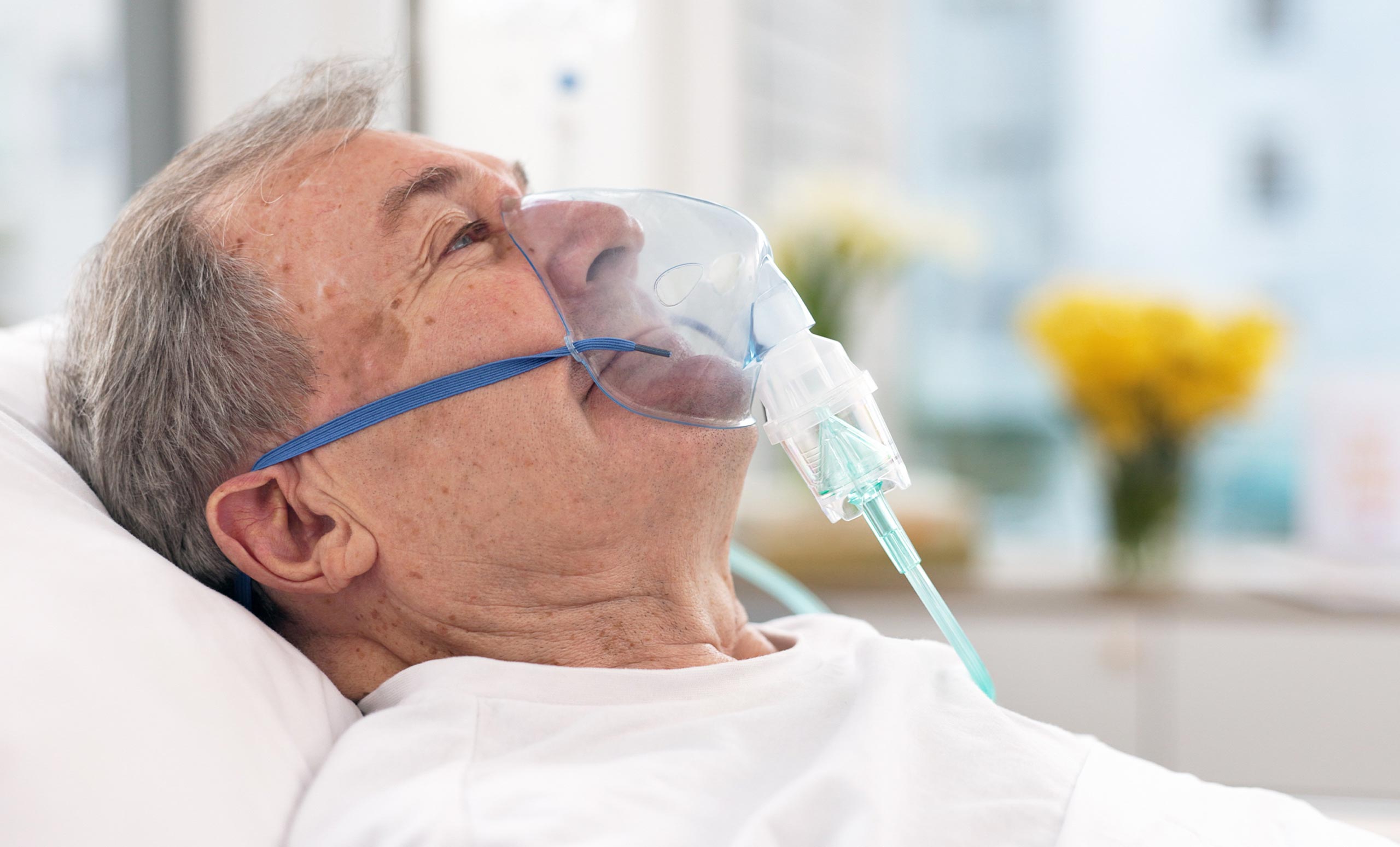Chronic Obstructive Pulmonary Disease (COPD) is a progressive illness that profoundly impacts the quality of life for those affected. Facing the end of life as a COPD patient is an incredibly challenging experience, marked by severe symptoms and significant emotional distress. Understanding the stages of the disease, recognizing its end-stage symptoms, and knowing what to expect can help patients and their families prepare for this challenging time.
Stages of COPD Disease
COPD is a group of lung disorders that cause airflow blockage and breathing-related problems. The two main conditions included under COPD are emphysema and chronic bronchitis. This condition is mainly caused by long-term exposure to contaminants, irritating gasses, or particulate matter, typically from cigarette smoke. COPD progresses through four stages, with symptoms worsening over time:
Mild airflow limitation. Symptoms may include a chronic cough and increased sputum production. Patients might not realize their lung function is abnormal.
Worsening airflow limitation. Symptoms include shortness of breath during physical activity, along with coughing and sputum increase. Typically this stage is when patients seek medical attention.
Further worsening of airflow limitation, increased shortness of breath, and repeated exacerbations significantly affecting the patient’s quality of life.
It is also known as end-stage COPD, where the airflow limitation becomes serious. Symptoms are chronic and persistent, and exacerbations can be life-threatening.
Symptoms of End-Stage COPD
The final stage of COPD is marked by severe symptoms that can be distressing for both patients and their families. Acknowledging these symptoms can help provide better care and prepare for what lies ahead. As symptoms might vary from person to person, some of them are most commonly present in the final progression of the disease, including:
Severe Breathlessness – Patients experience extreme shortness of breath even at rest. This symptom often requires supplemental oxygen and can be accompanied by frequent respiratory infections.
Chronic Cough and Sputum Production – Persistent cough with mucus production continues to be a significant issue.
Fatigue – Lack of energy and extreme tiredness are common, making even simple daily tasks difficult.
Weight Loss and Muscle Wasting – Patients often lose weight and muscle mass due to increased energy expenditure from breathing and reduced appetite.
Frequent Exacerbations – Sudden onset of symptoms that may worsen and require hospitalization, potentially becoming life-threatening.
Anxiety and Depression – The chronic and progressive nature of the disease, coupled with severe symptoms, often leads to significant emotional distress.
What to Expect at the End of Life
As COPD progresses to its final stages, patients and their families may have many questions about what to expect. Here are some crucial aspects to consider:
It is gradual and varies from person to person. The dying process can be prolonged, with periods of stability followed by severe exacerbations. It is essential to recognize that each patient’s journey is unique and accompany them on a personalized basis.
Effective symptom management becomes the primary focus. This effort includes the use of medications to ease breathing, reduce coughing, and manage anxiety and depression. Supplemental oxygen is often required to maintain adequate oxygen levels.
Hospice Care for COPD Patients
This specialized medical care focuses on relieving a progressive illness’s symptoms and stress. For end-stage COPD patients, hospice is designed to provide compassionate care in the final phase of their disease, focusing on quality of life rather than curative treatment. Here’s how hospice care supports COPD patients:
Hospice care providers specialize in managing complex symptoms. For COPD patients, this includes:
- Breathlessness Management – Using medications, breathing techniques, and oxygen therapy.
- Pain Management – Addressing any pain that might be present due to other conditions.
- Psychological Support – Providing counseling and emotional support to both patients and their families.
Emotional and Spiritual Support
The end of life can bring a wide array of emotions. Hospice teams include social workers and chaplains who offer emotional and spiritual support appropriate to the patient’s needs and beliefs.
Hospice care also extends to the family, offering respite care, counseling, and guidance on what to expect as the disease progresses. This support helps families cope with the many challenges of caring for a loved one with end-stage COPD.
Hospice teams coordinate with other healthcare providers to ensure that all aspects of patient care are aligned. This holistic approach helps manage symptoms more effectively and reduces the stress and anxiety on the patient and their family.
Planning and Decision Making
Hospice care providers might assist patients and families in making important decisions about end-of-life care, including advance directives and preferences for care. These discussions ensure that the patient’s wishes are respected and honored.
If you or a loved one is facing end-stage COPD, do not hesitate to reach out for support. At Ascend Hospice Care, we can make a profound difference, offering the care and comfort needed during this final phase of life. Remember, you are not alone; help is available to go through this journey with compassion and grace.






